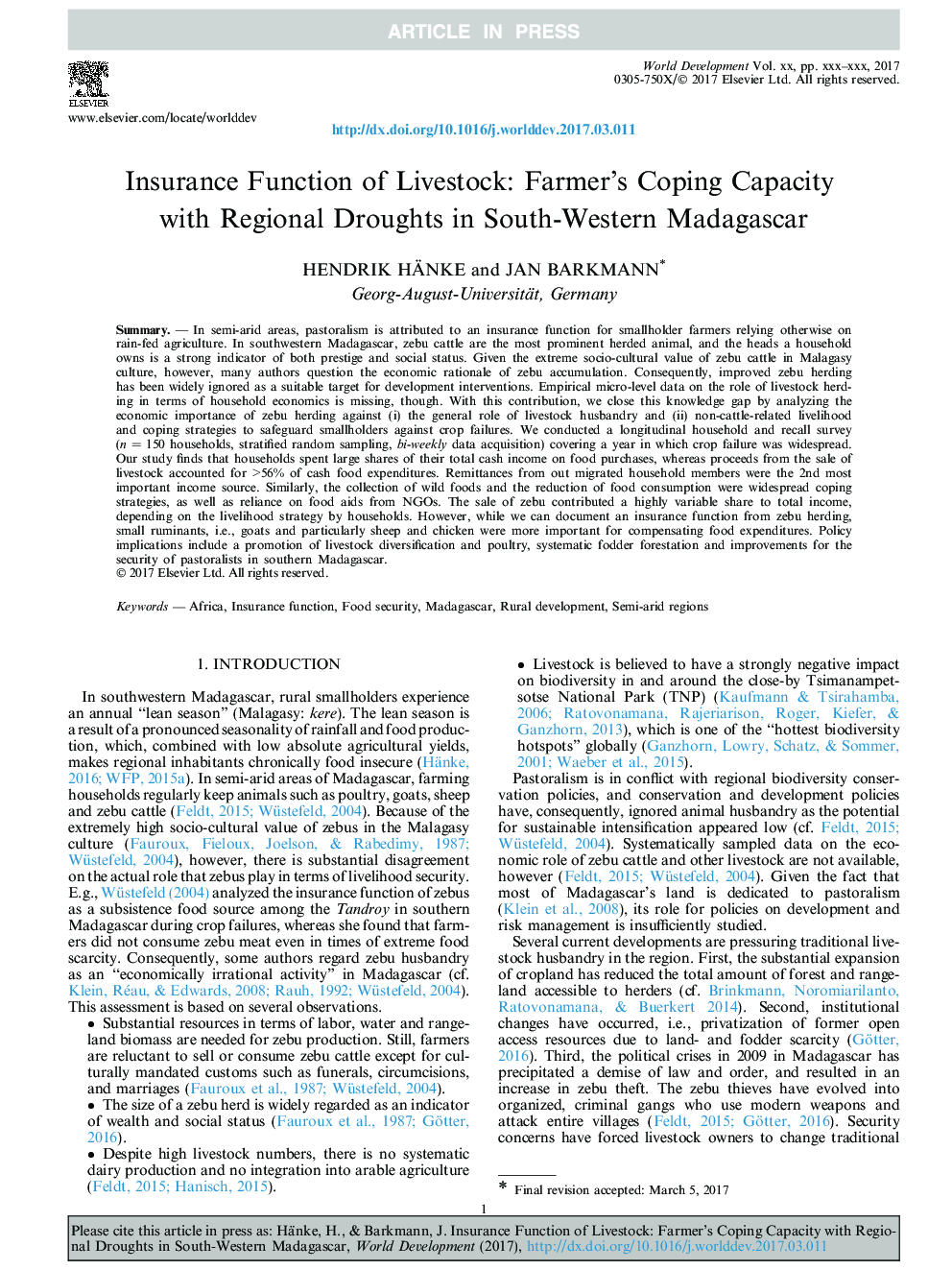| Article ID | Journal | Published Year | Pages | File Type |
|---|---|---|---|---|
| 5105061 | World Development | 2017 | 12 Pages |
Abstract
We conducted a longitudinal household and recall survey (n = 150 households, stratified random sampling, bi-weekly data acquisition) covering a year in which crop failure was widespread. Our study finds that households spent large shares of their total cash income on food purchases, whereas proceeds from the sale of livestock accounted for >56% of cash food expenditures. Remittances from out migrated household members were the 2nd most important income source. Similarly, the collection of wild foods and the reduction of food consumption were widespread coping strategies, as well as reliance on food aids from NGOs. The sale of zebu contributed a highly variable share to total income, depending on the livelihood strategy by households. However, while we can document an insurance function from zebu herding, small ruminants, i.e., goats and particularly sheep and chicken were more important for compensating food expenditures. Policy implications include a promotion of livestock diversification and poultry, systematic fodder forestation and improvements for the security of pastoralists in southern Madagascar.
Related Topics
Social Sciences and Humanities
Economics, Econometrics and Finance
Economics and Econometrics
Authors
Hendrik Hänke, Jan Barkmann,
